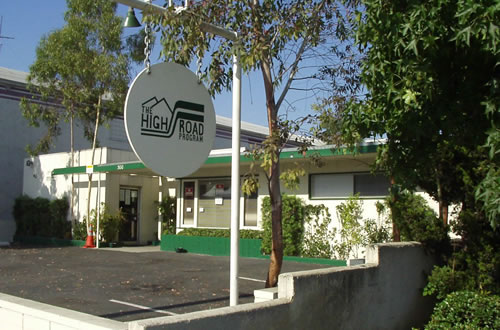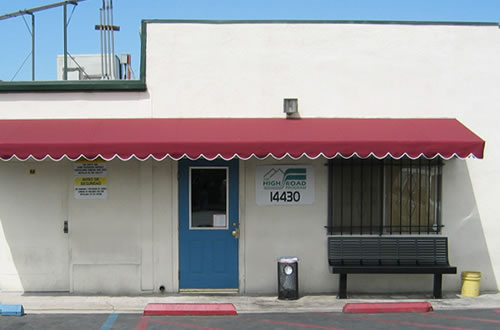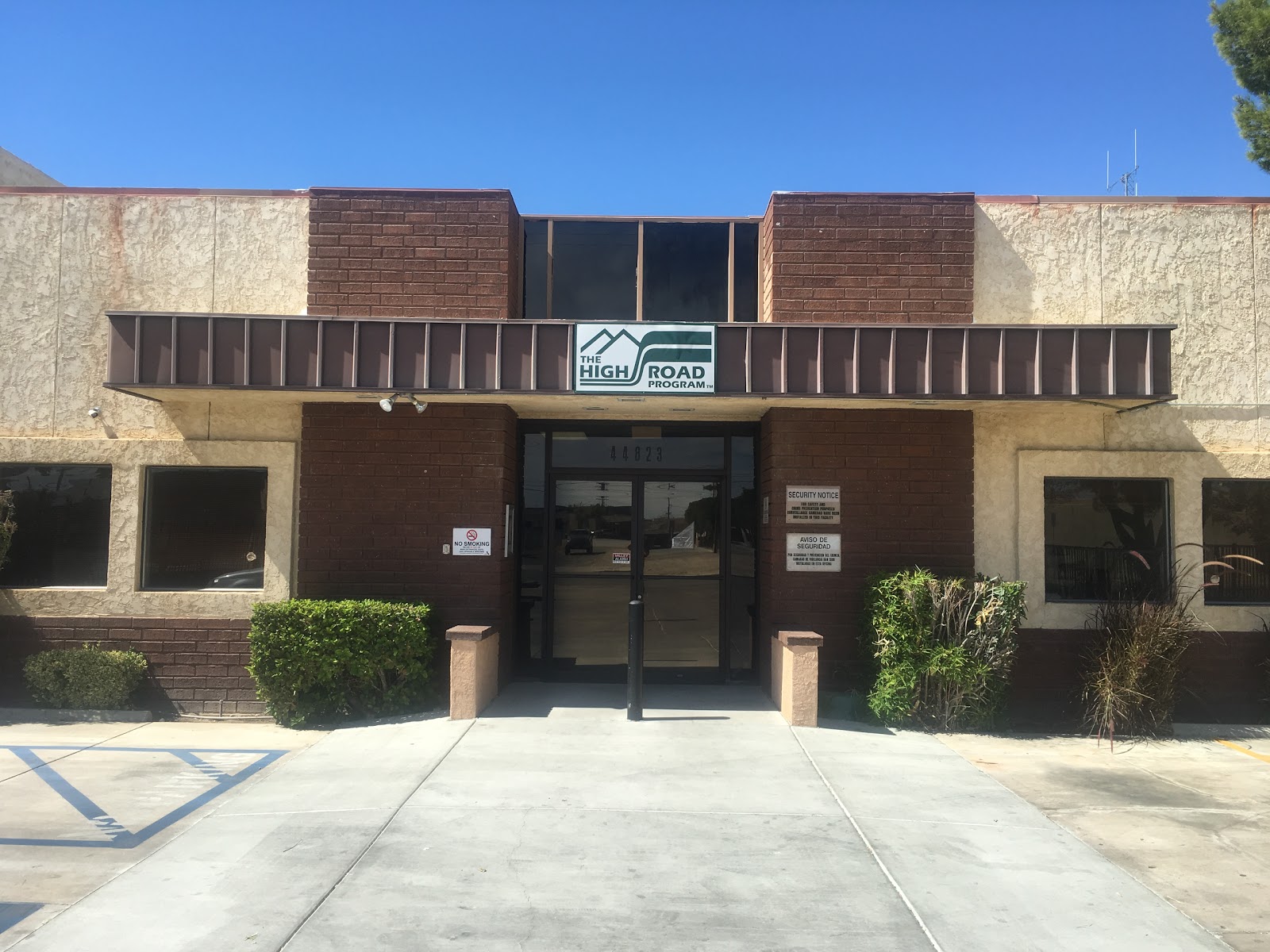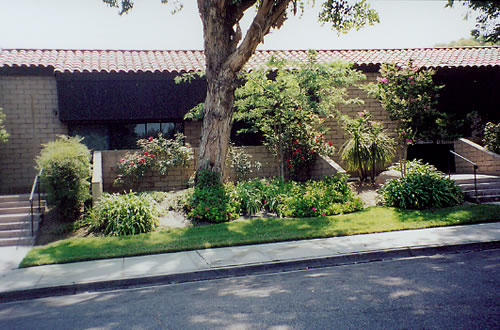The High Road Program

Overview
The High Road Program is an accredited substance abuse treatment center that provides outpatient detoxification, for men and women from 18+ years of age. As part of their special programs, The High Road Program To help patients achieve sobriety, The High Road Program provides intake assessments. Afterward, patients receive group counseling, individual psychotherapy, and family counseling during treatment. The High Road Program is located in Pasadena, California, providing treatment for people in Los Angeles County, accepting cash or self-payment, sliding fee scale (fee is based on income and other factors), and state-financed health insurance plan other than medicaid.
The High Road Program at a Glance
Payment Options
- Cash or self-payment
- Sliding fee scale (fee is based on income and other factors)
- State-financed health insurance plan other than Medicaid
- Monthly
Assessments
- Comprehensive mental health assessment
- Comprehensive substance use assessment
Age Groups
- Adults
- Young adults
Operation
- Private for-profit organization
Accreditations
State department of health:

Government agencies issue State Licenses, which grant rehabilitation organizations permission to conduct their operations lawfully within specific geographic regions. Licenses needed to operate are typically determined by the type of rehabilitation program offered by the facility and its physical location.
Treatment At The High Road Program

Conditions Treated
Mental health treatment:
Mental health services are essential during treatment for drug and alcohol addiction, whether you receive treatment in an inpatient or outpatient setting. While receiving inpatient care, you can expect to have round-the-clock access to mental health therapists and medical staff. Additionally, you will likely receive a number of different therapies and mental health options like individual and group counseling, addiction and relapse prevention education, and coping skills training.
Alcoholism:
Alcohol addiction is a condition where a person's brain gets used to having alcohol, making it hard for them to control their drinking. This can lead to feeling down, acting without thinking, wanting alcohol strongly, and feeling sick if they don't drink. To help with this, treatment programs are available. These usually include a guided process to safely stop drinking, talking with professionals to work through problems, and joining support groups with others facing similar issues. While these treatments can't fully cure the addiction, they provide tools and support to help individuals live a better life and keep their drinking under control.
Opioid Addiction:
Opioid addiction rehabilitation is a specialized treatment process tailored to address the unique challenges and complexities of opioid dependence, including drugs like heroin and prescriptions like oxycodone. The process typically begins with a medical detox to ease withdrawal symptoms, followed by therapeutic interventions to address the root causes of addiction. This holistic approach aims to provide individuals with the skills and support needed for long-term recovery from opioid use.
Substance use treatment:
Substance use rehabilitation represents a holistic treatment strategy tailored to aid individuals grappling with drug or alcohol addiction. This comprehensive rehabilitation method encompasses two key aspects: first, addressing the physical dependency, often commencing with detoxification, and second, tackling the psychological triggers through a range of therapeutic techniques. The ultimate aim is to empower individuals to attain and sustain sobriety while providing them with the necessary skills and coping mechanisms to successfully reintegrate into society and lead a life free from substance abuse.
Co-occurring Disorders:
Dual-diagnosis rehabilitation centers often offer the most suitable approach for addressing concurrent mental health and substance abuse issues. These facilities typically employ a team of medical and behavioral specialists who utilize a variety of interventions and create a conducive healing environment to support your journey toward lasting recovery. Their comprehensive treatment approach typically encompasses evidence-based therapies such as cognitive-behavioral therapy, recovery support meetings, 12-step facilitation, psychoeducation, skills training, and group therapy to help you achieve and maintain long-term wellness.

Levels Of Care
Detoxification:
Drug and alcohol addiction often takes a heavy toll on one's body. Over time, a physical dependence can develop, meaning the body physiologically needs the substance to function. Detox is the process of removing drugs and/or alcohol from the body, a process that can be lethal if mismanaged. Medical detox is done by licensed medical professionals who monitor vital signs and keep you safe, healthy, and as comfortable as possible as you go through detox and withdrawal. The length of stay at the detoxification program is determined according to the specific needs of the patient.
Aftercare:
Aftercare treatment refers to the continued support and care that individuals receive following the completion of their primary treatment program for substance abuse or addiction. This phase aims to aid individuals in maintaining their sobriety, improving personal skills and coping strategies, and integrating back into society. Aftercare can include ongoing therapy, support group meetings, education, and monitoring, which are crucial for preventing relapse and promoting long-term recovery. Through a combination of community support, accountability, and personal development, aftercare provides a structured pathway for individuals to continue their recovery journey in a supportive environment.
Outpatient:
Outpatient treatment in a rehab center offers structured therapeutic services for individuals seeking recovery without full-time residential admission. Unlike intensive outpatient programs, which demand more frequent and longer sessions, standard outpatient care provides a more flexible approach, allowing participants to maintain daily activities and responsibilities while undergoing treatment.

Treatment Modalities
Group counseling:
Group counseling provides a supportive environment where individuals share personal experiences and insights, under the guidance of a professional counselor. It facilitates self-awareness, fosters interpersonal learning, and helps members work through personal and relational challenges. Through shared dialogue and reflection, individuals learn coping strategies, gain emotional support, and experience personal growth within a communal setting.
Individual psychotherapy:
In individual therapy, a person engages in a one-on-one session with a qualified therapist or counselor. This therapeutic approach is crucial in successful substance abuse treatment because it delves into the underlying causes of addiction, addressing issues the individual may encounter in their familial, social, and professional or academic environments.
Family counseling:
Family Counseling is a therapeutic approach that seeks to address and resolve conflicts, improve communication, and strengthen relationships within the family unit. By providing a safe space for family members to express their feelings and concerns, a trained counselor facilitates understanding and collaboration among members, promoting healthier dynamics and enhancing overall family well-being.
Life Skills:
Life skills training encompasses a comprehensive set of abilities essential for individuals to thrive in society. These encompass time management, career guidance, financial acumen, and effective communication. In the context of addiction recovery, true success goes beyond mere abstinence; it's about flourishing. Life skills instruction equips individuals with the practical tools needed to navigate society successfully, paving the way for a fulfilling life and, consequently, lasting sobriety.
Cognitive Behavioral Therapy:
Cognitive Behavioral Therapy (CBT) is a form of psychotherapy that emphasizes the critical role of thinking in how we feel and what we do. It aims to identify and challenge distorted or negative thought patterns and behaviors, teaching individuals to replace them with more constructive and rational beliefs. CBT is evidence-based and has been shown to be effective in treating a variety of psychological disorders, including depression, anxiety, and phobias, among others.
Motivational Interviewing:
Motivational Interviewing (MI) in addiction treatment is a client-centered counseling approach designed to enhance an individual's intrinsic motivation to change. By addressing ambivalence and tapping into personal values, MI fosters meaningful conversations about substance use and promotes commitment to recovery-focused goals.
Holistic Treatment:
Holistic Treatment refers to an integrative approach to addiction recovery and rehabilitation that addresses the physical, emotional, mental, and spiritual aspects of an individual's well-being. Beyond just focusing on the addiction itself, this approach emphasizes whole-person healing and often incorporates alternative therapies such as acupuncture, yoga, meditation, and nutritional counseling. By treating the entire person and not just the symptoms of addiction, holistic treatment aims to ensure a more balanced and sustainable recovery.

Additional Locations
Contact Information
DISCLAIMER: The facility name, logo and brand are the property and registered trademarks of The High Road Program, and are being used for identification and informational purposes only. Use of these names, logos and brands shall not imply endorsement. BetterAddictionCare.com is not affiliated with or sponsored by The High Road Program.




